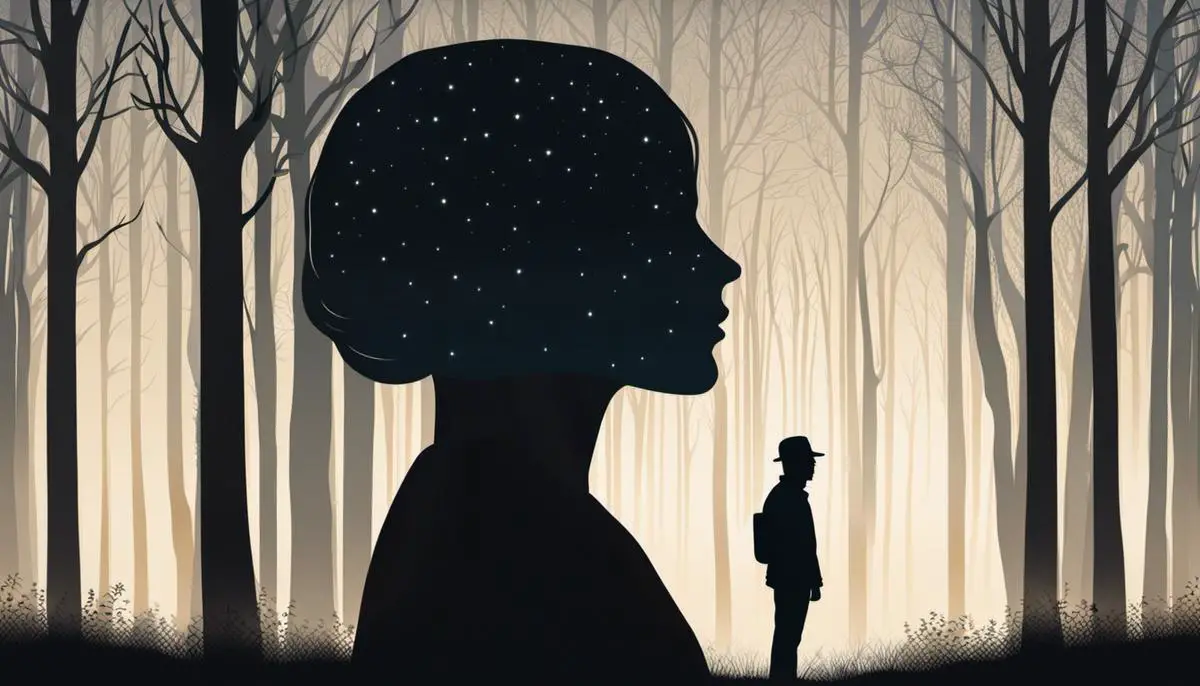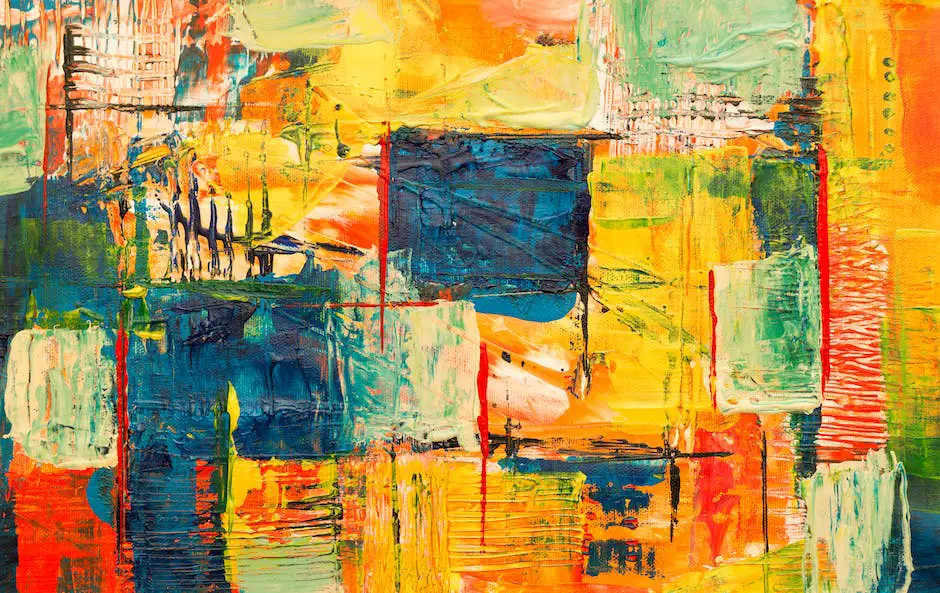Dreams, those mysterious narratives that play out in the theater of our subconscious each night, are a universal phenomenon rich in symbolism and deeply intertwined with our individual and collective psyche. An understanding of this symbolism, particularly as it relates to seeing a stranger’s death in a dream, is central to unlocking the potential meanings our dreams might be attempting to communicate. As we explore the diverse interpretations of death and stranger-related imagery from varying cultural, religious, and psychological viewpoints, we encourage the reader to bear in mind that dream analysis is as much an art as it is a science. It ultimately relies on individual perspective and context, hence, interpretation remains highly personal.
Understanding Dream Symbols
Understanding Dream Symbols: The Concept of Death
From a psychoanalytical perspective, dreams are thought to be a road map of our unconscious desires, fears, and obsessions. Death represents a transformation or the ending of a phase or aspects of oneself. When viewed within the rigorous framework of expert dream interpretation, witnessing a stranger’s death symbolizes death of an aspect of oneself that the dreamer is not familiar with or does not associate with.
Cultural Interpretations of Death in Dreams
In many cultures, death is seen as part of a cyclical process and not the end. This is reflected in dream interpretations. For example, in some Native American cultures, death in a dream signifies a time of transformation and regeneration. Dreaming of witnessing a stranger’s death would invite a person to open themselves to change, growth, and personal development.
For Eastern cultures, death in a dream can be seen as a positive symbol. In Chinese tradition, dreaming of someone dying is considered a sign of good fortune or potential for new beginning. Hence seeing a stranger’s death in a dream can signify an incoming luck or fortune.
Psychological Interpretation of Death in Dreams
From a psychological perspective, Swiss psychiatrist, Carl Jung suggested that death represents an internal aspect of transformation and self-discovery. In the context of witnessing a stranger’s death, it may be a reflection of an aspect or trait within your personality that you are unfamiliar with or detached from is undergoing a change.
The Significance of the Stranger in Dreams
The stranger in your dreams represents a part of you that is not fully integrated or acknowledged. Witnessing this stranger’s death indicates a process of inner transformation, signaling the death or end of old habits, beliefs, or behaviors in order for new growth and rebirth to happen.
Personal Context Matters
Finally, the interpretation of witnessing a stranger’s death in a dream depends highly on personal context. People’s feelings, perceptions, experiences, relationship status, and cultural background all play a role in how they perceive and interpret their dreams. What one person perceives as a negative sign could be a positive indication for someone else. This indicates the high subjectivity involved in dream interpretation.
Above all, dream interpretation requires introspection and self-awareness. Interpreting a dream about stranger’s death might shed light on unresolved issues, latent desires, hidden fears, and the exploration of untapped potential. This takes patience and a willingness to confront and embrace the depths of the psyche.
Regardless of whether you’re interpreting dreams from a cultural or psychological standpoint, the occurrence of death does not always imply physical fatality. Instead, it is more often associated with symbolic concepts like transformation, rebirth or significant personal transformation. This signifies a change or growth within oneself, an integral part of personal development. It’s essential to remember to focus on this broader interpretation rather than seeing dream sequences litterally.

Specific Imagery Significance
Delve into the Role of Unfamiliar Characters in Dreams
When dissecting dreams, strangers can act as mirrors, reflecting aspects of our character that we might not fully acknowledge or comprehend. They can represent hidden or unexplored elements in our subconscious, such as feelings, ambitions, fears, or tendencies we’re oblivious to when we’re awake. The unfamiliarity of a stranger in a dream mirrors our lack of recognition towards these concealed dimensions within ourselves. Thus, the stranger in the dream becomes a metaphor for the parts of our psyche we’ve yet to discover.
Decoding the Dream of a Stranger’s Death
The death of a stranger in a dream is an arresting image that can leave the dreamer feeling unsettled and perplexed. In dream psychology, death isn’t necessarily a bad omen or a prediction of impending doom. Rather, motivational speaker and dream analyst Tony Crisp suggests that dreams of death could be a sign of significant transformation or change happening within the dreamer’s life.
Death in dreams typically symbolizes the end of something and the beginning of another, much like closing one chapter and opening a new one – it can denote personal growth, transitions, self-discovery, or big transformations occurring in the dreamer’s life or personality.
Witnessing a Stranger’s Death and Its Implications
Seeing a stranger’s death in a dream may seem frightening or distressing at first, but considering the symbolic representations this image carries, it’s a potent symbol of personal metamorphosis. As the individual dies, so does an unknown or unexplored aspect of your personality or life phase that the stranger represents, potentially making way for personal growth and newly discovered aspects of yourself.
Moreover, this could also convey feelings of detachment or alienation towards certain elements of life. This archetype signals the dreamer’s need for change and breaking free from traditional patterns or habits, embracing a new perspective or way of life.
Understanding the Dream
Dream interpretation, in general, is a complex process requiring careful consideration of the dream context, environment, and the deep-seated emotions involved. When it comes to a dream about witnessing a stranger’s death, these factors become integral in understanding the deeply ingrained symbolism it carries. The dreamer’s current life situation, feelings, and prevailing changes must all be taken into account for a comprehensive interpretation.
Viewed broadly, such a dream doesn’t predict an imminent death or tragedy. Instead, it often symbolizes a process of personal transformation. It represents significant life changes that the dreamer is going through or will experience, and untapped potentials waiting to be explored. The stranger, in this case, serves as a symbol of these unknown aspects and changes.

Psychological Interpretations
Freudian Insights into Dream Interpretation
Sigmund Freud, the infamous pioneer of psychoanalysis, is widely recognized for his contributions in the realm of dream interpretation. To him, dreams served as pathways to the unconscious mind, unveiling suppressed feelings and internal conflicts. If one were to dream about witnessing a stranger’s death, Freud would suggest that this scenario resides primarily within the ‘unconscious’ plane. This implies that the gruesome spectacle may symbolize a repressed memory, worry, or desire from the dreamer’s waking life, which they might be subconsciously neglecting or failing to address.
The Significance of a Stranger in Freudian Analysis
In Freud’s dream symbolism, a stranger does not always represent an actual unknown person. Often, it is a projection of a repressed or unknown part of the dreamer’s personality, or it could represent another person who is significant to the dreamer but disguised as a stranger. This implies that witnessing a stranger’s death in a dream could symbolize the death or end of a certain aspect of oneself, such as an old habit, a past trait, or a phase in the dreamer’s life that is about to change or has already ended.
Carl Jung’s Theory of Dream Interpretation
Carl Jung, a Swiss psychiatrist and psychoanalyst, also contributed significantly to dream interpretation. Jung proposed that dreams provide solutions to problems the dreamer is currently facing. To him, dreams are not merely disguises for hidden meanings but are the psyche’s attempt to communicate important information.
Jungian Perspective on Witnessing a Stranger’s Death
In Jungian psychology, a stranger in a dream symbolizes the shadow aspect of the self, which includes the parts of our personality we fail to see or acknowledge consciously. Seeing a stranger die might reflect one’s unconscious attempt to eliminate an undesired trait, habit, or attitude in oneself.
Moreover, death in a dream is often viewed not as an end, but as a symbol of transformation and personal development. Therefore, witnessing a stranger’s death in your dream might be understood as an indication of a change, a fresh start, or the imminent end of an old way of thinking or behaving in your waking life according to Jung.
Both Freud and Jung emphasize that one’s personal associations and subjectivity greatly influence the interpretation of dreams. In order to understand a dream about witnessing a stranger’s death, one must also consider individual elements such as the dreamer’s emotions, personal experiences, and life situations. These factors significantly contribute to a personalized interpretation.

Spiritual and Religious Interpretations
Interpreting Stranger’s Death in Dreams from a Spiritual Perspective
Seeing a stranger’s death in a dream can trigger various emotions, and in the spiritual realm, it often signals an impactful change or personal transformation. Rather than predicting an imminent physical death, this dream may symbolize the end of a chapter in your life, making way for new beginnings, development, or evolution. Therefore, it’s more about personal renewal and purging of the old.
Furthermore, the stranger’s death could also serve as a wakeup call to pay attention to segments of your personal life which have been overlooked. This dream could imply the requirement for self-analysis and introspection.
Religious Interpretations of Dreaming about a Stranger’s Death
In various religious views, witnessing a stranger’s death in dreams has different understandings. For instance, from a Christian perspective, death is often perceived as a transition, a movement from the earthly realm to the supernatural. Thus, a dream about a stranger’s death could symbolize spiritual transformation or a call for spiritual rebirth.
In the Islamic tradition, death in a dream is generally not seen as a literal prediction of a future event. Rather, it’s often interpreted as a symbolic dissolution of something. Therefore, witnessing the death of a stranger could signify a radical shift in the dreamer’s life circumstances or personal attitudes.
In Hinduism and Buddhism, both religions which believe in the cycle of life, death, and rebirth, witnessing a stranger’s death can be interpreted as an end to old ways, habits, or attitudes and a rebirth or fresh start. The stranger can stand for unfamiliar or neglected aspects of the self, and their death signifies the need for self-improvement and spiritual growth.
Cultural Perspectives on Death Dreams
Culture also plays an important role in how the interpretation is shaped. Cultures that embrace the cyclical nature of life and death, such as many Indigenous cultures, may view such dreams as a positive indication of transition, change, or transformation.
Conversely, in cultures where death is predominantly associated with fear and grief, these dreams may be more likely to evoke feelings of anxiety or dread. However, even in these cultures, the symbolic interpretation of death representing change and transformation often holds true.
The caveat remains that dream interpretation is indeed, highly subjective and ultimately, the meaning of such a dream may also be influenced by the dreamer’s unique, personal associations and experiences.

After exploring the multifaceted symbolism of witnessing a stranger’s death in dreams, we find that such a dream might not be as foreboding as one might initially perceive. On the contrary, it can symbolize transformation, the unknown, or overlooked aspects of self – depending on one’s cultural, psychological, religious, or spiritual perspective. Remember, our dreams are rich, deeply personal narratives woven from the threads of our subconscious. Interpreting them should consider the individual context and unique life circumstances. Consider this guide not as the final word, but as a starting point in the intriguing and deeply personal journey of dream exploration.
